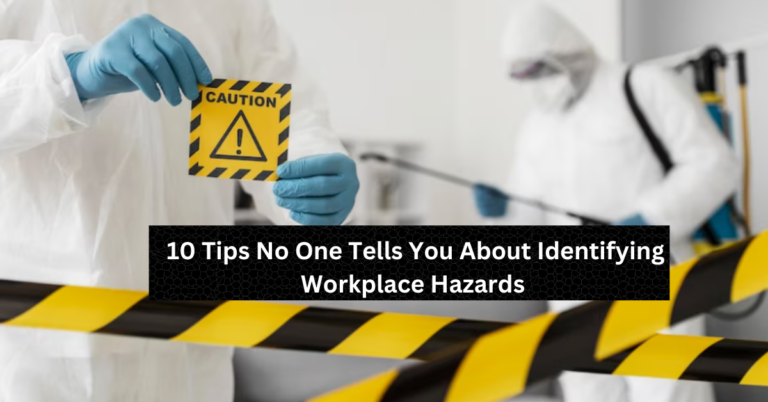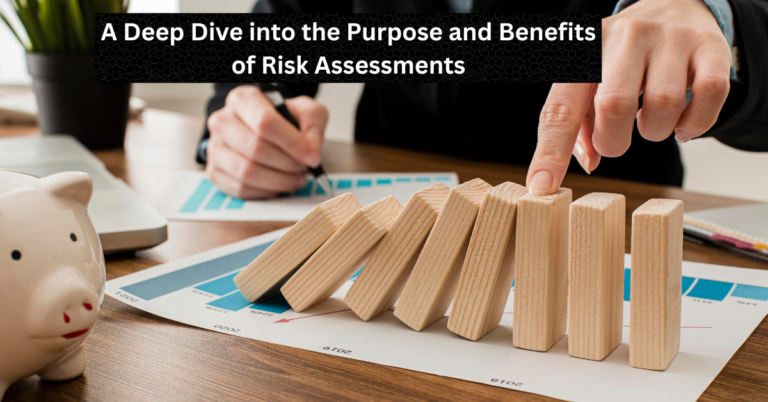What is the Role of Mental Health in Promoting Workplace Safety?
Lack of mental health will result in the collapse of work. How can we concentrate on our work if we are not mentally stable? So being mentally fit is as important as physical fitness. Anyone working in the health and safety sector needs to be mentally strong and healthy. Otherwise, they might have an accident.
A strong-minded person can ensure workplace safety. An employee with poor mental health may not be able to focus, make sound decisions, or communicate effectively. It can adversely affect their safety and the safety of those around them.
For instance, if someone has high levels of anxiety or depression, they may be more prone to making mistakes or taking risks that could lead to accidents or injuries. In addition to that, mental health issues can also affect an individual’s physical health, leading to fatigue or decreased immunity, which can further compromise their safety at work.
Therefore, it is advisable for employers to prioritize mental health in the workplace in order to maintain a safe and productive working environment. Organizations can help employees manage their mental health and reduce the risk of safety incidents by providing resources and support for mental well-being.

How Does Mental Health Affect Safety in Your Workplace?
Employee well-being and overall productivity are heavily influenced by both mental health and workplace safety.
Importance of Mental Health in the Workplace
The emotional, psychological, and social well-being of a person is referred to as mental health. It influences how people think, feel, and act, as well as their ability to deal with stress, relate to others, and make decisions.
A healthy work environment prioritizes mental health for several reasons:
- Employee well-being: Resolving mental health issues will foster a positive work culture, promote job satisfaction, and support employees’ overall well-being. It can also contribute to stress reduction, improved mood, and increased resilience among workers.
- Productivity and Performance: If the employees are mentally satisfied, they are more likely to be engaged, motivated, and focused on their work. This boosts productivity, creativity, and job performance.
- Retention and Recruitment: Companies that prioritize mental health are more appealing to job seekers and are more likely to retain talented employees. Also, it is damn sure that commitment to mental well-being can help an organization’s reputation and attract top talent.
Workplace Safety and Mental Health
Workplace safety entails providing employees with a safe and healthy environment. While workplace safety has traditionally focused on physical hazards, the impact on mental health must also be considered.
Some important factors to consider are:
- Occupational Stress: Workplace stress can have a negative impact on mental health. Workloads, long hours, excessive pressure, a lack of control, or conflict can all contribute to stress and increase the risk of mental health problems like anxiety and depression.
- Psychological hazards: Psychological hazards include workplace bullying, harassment, discrimination, and toxic work cultures. Such issues can lead to significant psychological distress and contribute to the development or exacerbation of mental health conditions.
- Prevention and Support: Organizations should put in place preventative measures to reduce workplace stress and psychological hazards. This includes offering employee assistance programs, promoting work-life balance, encouraging open communication, and providing mental health awareness training.
How can we promote Mental Health and Workplace Safety?
Organizations can implement the following strategies to promote mental health and workplace safety:
a.Policies and Programs: Implement comprehensive mental health and workplace safety policies. Also conduct employee assistance programs, mental health training, and resources to support employees.
b.Positive Work Culture: Foster a positive work culture that encourages open communication, provides resources for stress management, promotes work-life balance, and provides support for employees experiencing mental health issues.
c.Risk Evaluation: Assess the workplace for potential psychological hazards on a regular basis, identify areas for improvement, and take the necessary steps to address them.
d.Training and Education: Provide mental health awareness, stress management, conflict resolution, and a supportive work environment to employees and managers.
e.Resource Access: Determine whether employees have access to mental health resources such as counseling services, helplines, or referrals to mental health professionals.
Remember that promoting mental health and workplace safety requires a collaborative approach involving employers, managers, and employees all working together to create a supportive and healthy work environment. Do not ignore mental health because it is important for your workplace culture.




